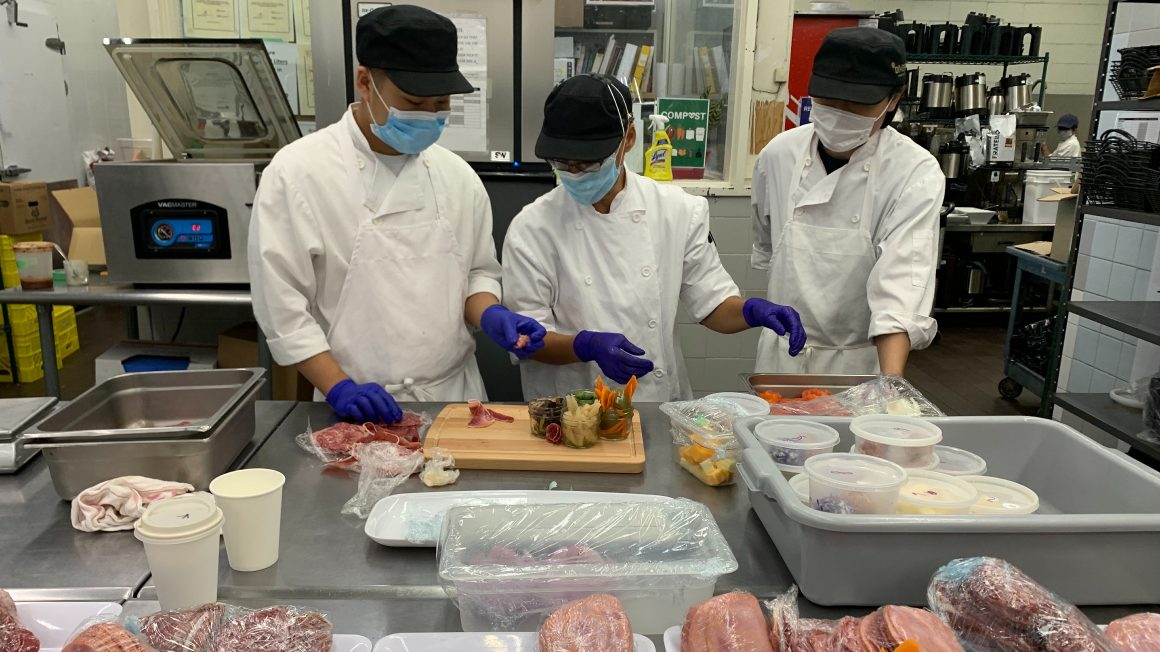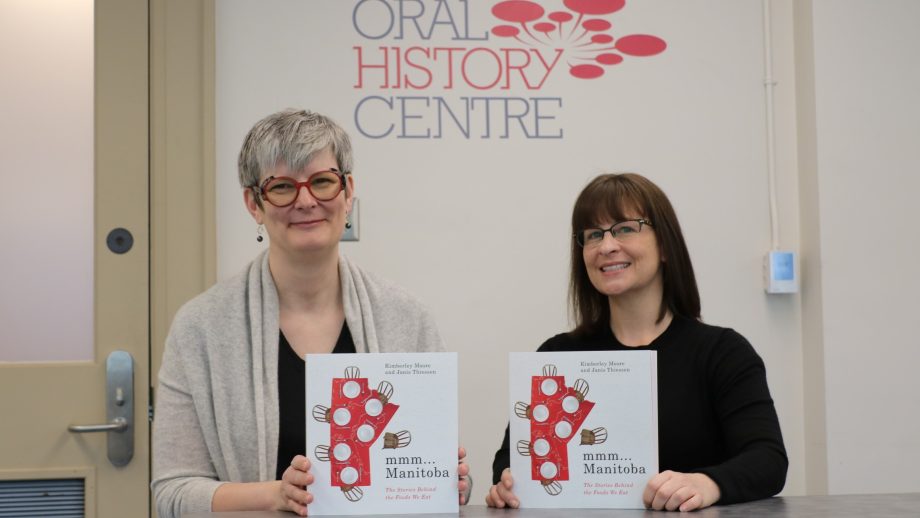Some of the most sustainable campus meals in North America are being served up at The University of Winnipeg.
We were the first mover and defined what it meant to be a sustainable food service on a campus.
Ian Vickers
UWinnipeg, once again, was the highest scoring Canadian campus in the food and dining category of the Association for the Advancement of Sustainability in Higher Education’s (AASHE) 2021 Sustainable Campus Index, thanks to the incredible work of Diversity Food Services.
“The magic of Diversity is that we reinvest the profits back into social, environmental, and sustainable mandates,” said Ian Vickers, Diversity’s Chief Operating Officer. “We’ve got a bunch of really committed people who genuinely care and, as a result, we have a culture of sustainability.”
UWinnipeg scored 89 per cent on this year’s AASHE index, matching their 2020 score. Scoring is based on meatless dining and sustainable food and beverage purchasing and practices. The next closest university in the rankings is almost 20 percentage points behind, sitting at 70.6 per cent.
“UWinnipeg is proud to continue to support and promote the work of Diversity Food Services,” said Joseph Wasylycia-Leis, Campus Sustainability Coordinator. “The fact that our institution is home to one of the most environmentally and socially friendly campus food providers in North America is a major source of pride for all of us.”
“With 62 per cent of all Diversity products being sourced here in Manitoba, and with 66 per cent of staff identifying as being members of marginalized communities, you don’t have to look very far to see the ripple effects of having this innovative social enterprise at UWinnipeg.”
Despite the challenges posed by a global pandemic, Diversity continues to be dedicated to cultural, social, environmental, and economic sustainability, while keeping everything as local as possible.
“One of the reasons I do what I do is because I feel responsible for the planet that we’re going to hand over to our kids,” Vickers said. “We’re going to continue to shift harder to doing what we do best, which is sustainability, and we’re going to continue helping other campuses develop their food services so they can make similar decisions.”
Moving to vegetarian
Looking ahead to 2022, the majority of Diversity’s meals will be designed vegetarian with the option to add animal products. This year-by-year move to a primarily vegetarian menu has increased during the pandemic.
“Of our introductory menu, 40 per cent was vegetarian in 2019,” Vickers explained. “Right now it’s up to 60 per cent and, by September 2022, I’m going to say the overriding majority of menu items will be vegetarian.”
Diversity’s customer base is also increasingly looking for more vegetarian and vegan options. For example, the spread of sales for their mushroom and almond-based burger versus their beef smash burger has increased from 12 to 14 per cent up to 25 per cent.
This, along with a focus on buying local, has led to a decrease in menu prices during a time when food costs are increasing.
“A box of bacon has gone up 200 per cent, but we’ve lowered the price on all of our meals on campus this year,” Vickers said. “Despite the fact we’ve experienced massive food inflation the last two years, we’re down about $1.25 per transaction today.”
The future of campus food
“We were 15 years ahead of the market.”
Looking at post-secondary campuses across Canada, Vickers says there’s finally been a move to more sustainable food services.
“We were the first mover and defined what it meant to be a sustainable food service on a campus, and it was hard,” he said. “We knew the answers a decade ago and now it’s good to see other institutions catching up.”
He hopes to share his knowledge from the past decade to help other post-secondary institutions become more sustainable with their campus food services, noting the University of Victoria and University of Guelph are two other institutions doing it right.
While everyone else is catching up, Diversity continues to improve their services and projects to be a continued leader internationally in food sustainability.
“I think I can confidently say we’ll continue to rank in the top five internationally when it comes to being the most sustainable food service on a campus.”





